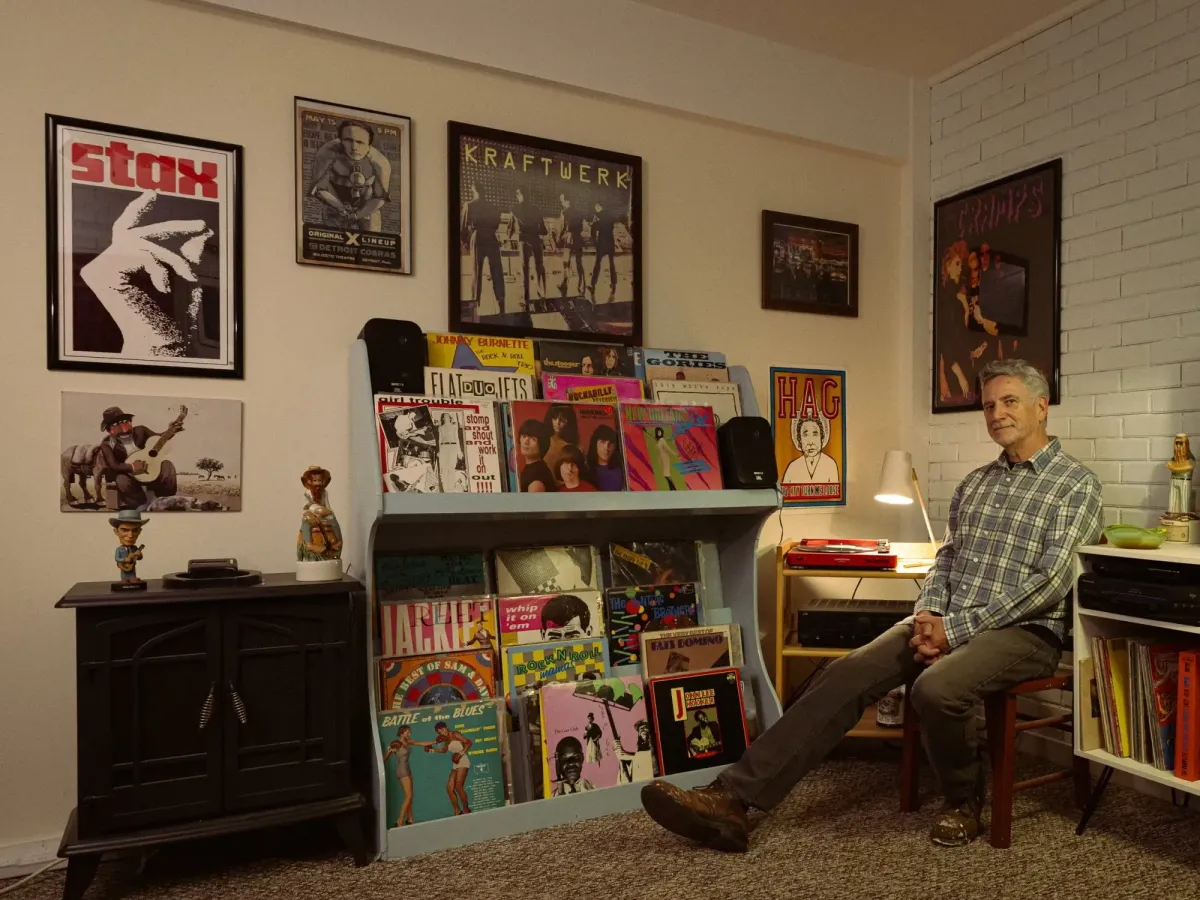READ A BOOK: The Hours are Long But the Pay is Low
Editor Rachel Cholst reviews The Hours Are Long But the Pay is Low, the memoir of Bloodshot Records co-founder Rob Miller. Miller impresses on us a devotion to authenticity, independence, and community.

I think it's safe to say that I wouldn't have much of a writing care without Rob Miller and Bloodshot Records. If you're a relatively recent fan of "Americana," Bloodshot was the byword for iconoclastic roots music in the '90s and 2000s. Well before the Americana Music Association sought to make something respectable out of artists who gleefully throw both middle fingers up at Nashville, Bloodshot provided a center for the misfits and freaks who found something in the connective tissue of punk, garage rock, soul, and country music. The Hours are Long But the Pay is Low is a profound memoir by Rob Miller, one of the label's founders.
Miller illustrates how Bloodshot's off-kilter sense of humor came to be – the book is informed by a rapid fire comedic style where nearly every paragraph boasts an irreverent punchline. The book is split into a side A and side B (naturally.) It's less a linear memoir and more a collection of recollections set in vaguely chronological order.
Side A traces Miller's musical biography. From high school outcast to proto-punk scenester to rabid crate digger, Miller's profound debt to the music that saved his life should be familiar to anyone reading this. Even if surf rock and blues aren't your speed, the discovery of connection to your fellow humans, that you're not the first to experience loneliness and pain and won't be the last, will resonate instantly and raise the hair on your arms as Miller guides us through his own transcendence. As he writes in the book's conclusion, "All the showcases and parties were my way of thanking them, as well as carrying a responsibility to what had come before me, what had gotten me, and gotten me out of where and what I was heading for" (p. 260). I know that feeling all too well.
I had the good fortune of visiting Bloodshot Record in 2015 or so. I felt like pilgrim, permitted to enter the hallowed halls of wall-to-wall carpet, drywall, and doors to offices that Miller had probably installed himself. I didn't get to meet Rob at that time, but it was enough of an honor to meet the publicist I'd been corresponding with for half a decade. He took me into the "warehouse" (a literal garage) and handed me a few LPs off the shelf. To the average passerby, the building wouldn't be that impressive. To me, it was the nerve center of a movement.
Side B details Miller's forays into the confusing and soul-deadening world of the music industry. I got a good chortle out of his perspective on the attempts to classify and market "insurgent" country...or alt-country...or the now-suburbanized "Americana." Like any good memoir of the music industry, Miller regales us with tales of the bizarre, the disappointing, and the awe-inspiring. Queer country fans will be interested to learn about Miller's first encounters with Lydia Loveless and River Shook (whom he refers to as "Sarah" in the advanced review copies.) Miller constantly points to the virtue of following his gut and his own sense of integrity, insisting that Bloodshot never be sold to the highest bidder and that the artists across his roster be allowed to navigate their creativity their own way. Following his gut served Miller well, but if that's all it took, nobody would ever sell their guitars to pawn shops.
Like most memoirs, there's a sense of wishing there was more. It's no secret that independent music communities have always been overburdened, under-resourced, and fueled by labors of love. Hell, I almost quit Rainbow Rodeo three different times this year alone. I wish we could've had more insight on what kept Miller going throughout the years, a little more insight into those dark nights of the soul and how he picked himself back up in the dawn of a new day.
If you're looking for more information on the label's troubling turn, it won't be here. I imagine there's an armada of NDAs that make it so – in fact, co-founder Nan Warshaw's name is written exactly once in the entire book, and merely as a statement of fact that she was the founding publicist. More than anything else, the disappointment and pain is going to take a lot longer than four years to unpack. The label is still releasing music after a sale to an absentee ownership group in 2022, but without the deep investment in community that Miller and others shared, it simply doesn't have the juice it once did.
At the end of the day, that curation and refusal to take the easy way out is Miller's thesis, and the thing that made his life's work so resonant. Miller's recollections of the dives, food, and music of early Chicago will make you want to throw your book down and head out to the nearest club. Life is so rich, and time's a wasting! Especially now, if we took the screens away from our noses and replaced them with amplifiers, gut bombs, or even other people...we'd all be better off.
As for that community Bloodshot created? I went to rate the book on my Storygraph app and was surprised to see it already had two reviews. I recognized the username of one of them instantly – it was the publicist I had worked with. I followed him immediately.
The Hours are Long But the Pay is Low comes out on Tuesday, 11/25. Purchase in the US and in the UK/Europe




